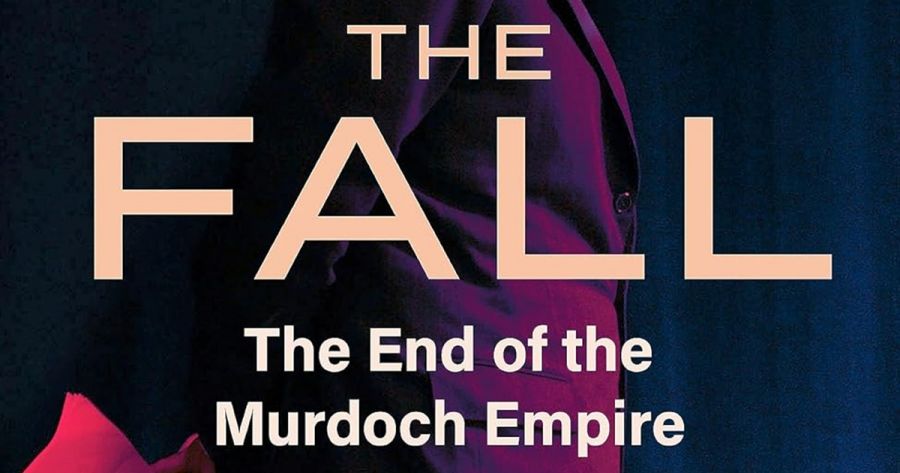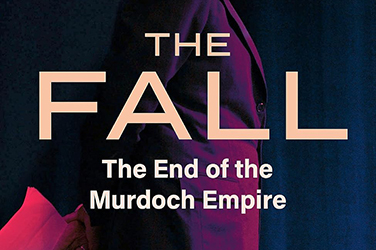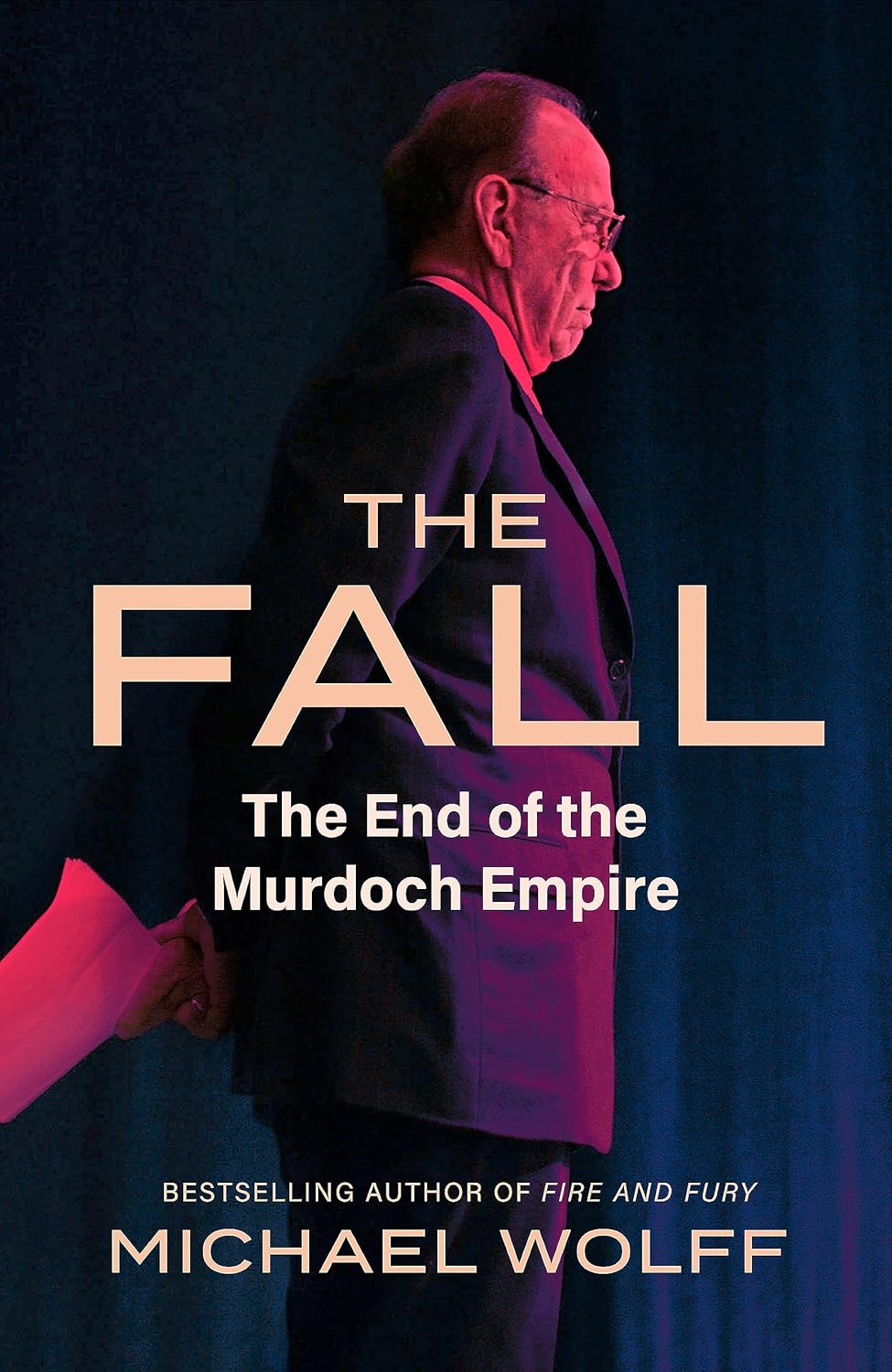
- Free Article: No
- Contents Category: Politics
- Review Article: Yes
- Article Title: Bad drunks and chuckleheads
- Article Subtitle: Rupert Murdoch’s diminished empire
- Online Only: No
- Custom Highlight Text:
In Michael Wolff’s telling, the final stretch of Rupert Murdoch’s seventy-year media career plays out like a ghost story. When, in 2016, Rupert’s sons, Lachlan and James, vanquished Roger Ailes – disgraced architect of Fox News – in a rare moment of fraternal unity, the money-printing reactionary machine Ailes had built for their father kept on mutating and metastasising, in ways that would haunt the company and the Murdoch family. Fresh from writing a blockbuster trilogy documenting the Trump presidency, in The Fall Wolff braves the ‘nest of vipers’ that is the late-stage Fox News empire with a deep contact list and a strong stomach. Gone is the rare access to Rupert himself that informed The Man Who Owns The News (2008), but, fortunately for Wolff and his readers, the largely unnamed vipers of The Fall are a chatty bunch.
- Article Hero Image (920px wide):
-Wikimedia%20Commons.jpg)
- Article Hero Image Caption: Tucker Carlson, 2018 (Gage Skidmore via Wikimedia Commons)
- Featured Image (400px * 250px):

- Alt Tag (Featured Image): Walter Marsh reviews 'The Fall: The end of the Murdoch empire' by Michael Wolff
- Book 1 Title: The Fall
- Book 1 Subtitle: The end of the Murdoch empire
- Book 1 Biblio: The Bridge Street Press, $34.99 pb, 320 pp
- Book 1 Cover Small (400 x 600):

- Book 1 Cover (800 x 1200):

Fox News has cemented Rupert Murdoch’s place as the biggest bogeyman in Western media, but it was Ailes and his 1965 that made it. He was the voice in the earpiece, the kingmaker making cable stars out of small-time wingnuts, the predator ranking women journalists according to their presumed expertise at fellatio. With Ailes out of the picture, the network descends into a ‘satellite system’ of private fiefdoms, populated by characters introduced in the bawdy caricatures offered by Wolff’s sources. Sean Hannity is an ‘Irish bartender’, Lauren Ingraham a ‘bad drunk’, James Murdoch ‘a prick’ and ‘hothead’, and Lachlan a ‘mascot prince’ and ‘chucklehead’.
The Murdochs attempt to fill the Ailes-shaped hole themselves, with Rupert and Lachlan taking over management of Fox News for the first time in its history. On the cusp of the Trump era, they face an uphill battle to prevent the network reconfiguring in the new president’s orbit, as key players like Hannity and Carlson become conduits between the station, the Trump White House, and an increasingly feral MAGA base.
Television has often played a key role in Rupert’s plans, from Adelaide in 1958 to the impossible dream of full ownership of BSkyB, but the male Murdochs have rarely been hands-on television executives (discounting Lachlan’s brief, disastrous spell at Australia’s Channel 10, which Wolff ignores). Both prove ill-suited to the task. Lachlan, having outfoxed his younger brother, James, to emerge as his father’s heir apparent, becomes an absentee CEO who has quite literally ‘gone fishing’ half a world away in Australia, as Wolff’s frequent references to Lachlan’s spearfishing hobby remind us.
Throughout his ascent, Rupert populated his growing empire with layers of management, a praetorian guard of trusted lieutenants who knew intuitively how to interpret and even pre-empt his needs, and who would do anything to meet their targets. He becomes less of a micromanaging puppet master and more of an enabler-in-chief. By 2020, however, that layer has been hollowed out by time and corporate bloodletting, with the old ‘Adelaide mafia’ replaced by Ailes-era survivors or people hired by his own sons, none of whom is particularly good at interpreting Rupert’s desires. Nor do they want to alter Fox’s course, in case they are blamed for a downturn in profit. This leaves the station and its stars to drive themselves – a runaway train made unstoppable by its own momentum.
Worse still, Wolff alleges, any orders Rupert does issue often degenerate into mumbled missives and ambiguous silences due to his secret cognitive decline, as with Mitch McConnell and the late Dianne Feinstein: the dysfunctional gerontocracy that runs the United States may not be confined to Washington. (This too, is contradicted in Manning’s account and goes against the official company line that Rupert remains in ‘robust’ health.)
Whether Rupert is senile or not, a communication breakdown is how Wolff explains Fox’s 2020 election night coverage, when a grumbled ‘Fuck Trump’ from Rupert was apparently interpreted as the go-ahead to make Fox the first network to call Arizona for Joe Biden. This skin-of-their-teeth move won the opprobrium of their MAGA audience, which led to a damaging course-correction, culminating in the platforming of stolen election narratives and a few multimillion-dollar lawsuits.
In this power vacuum, actors like Tucker Carlson flourish. This bow-tie-wearing has-been, relegated to the weekend shift by Ailes, gains a third chance at stardom as a hyperbolic MAGA-whisperer. Wolff perceptively argues that Carlson pitches at an even earlier 1920s America, where contemporary racial tensions are superseded by anti-Catholic sectarianism. Here, at the tail-end of a century of Murdochs wielding power in the media, it is an almost quaint throwback to the era when Keith Murdoch made his name in Melbourne at the Herald and Weekly Times, railing against Jews and Catholics.
In 2020, however, this is not a tempting proposition to either Rupert or his children, especially the four older ones, who, unlike his two daughters with Wendi Deng, have a vote in the family trust. Despite these misgivings, since selling their entertainment assets to Disney in 2017, the Murdochs are stuck with the Fox News that Ailes created and that their own conduct unleashed.
In some ways, The Fall partly absolves the Murdochs of Fox’s sins, through negligence rather than malice. While Fox News might be Ailes’s ugly baby, however, it is still part of the Murdoch family, and the book’s combined picture is one of a diminished empire saddled with the legacy of seventy years of trashing norms, pandering to its audience’s prejudices, and nakedly courting political influence.
The big question, hastened by Rupert’s resignation on the eve of The Fall’s September release, is whether the younger Murdochs might simply cash out of the cable news game before it collapses in on them. Could Lachlan abandon his hard-fought succession? Could the other siblings leave Fox News to the market, knowing they missed their shot at making it a ‘force for good’ and miraculously clearing the family’s name?
For all Wolff’s backgrounded insights, yacht-side gossip, and posthumous point-scoring, these remain tricky questions to answer definitively while a certain someone is still alive. One thing’s for sure: the Murdochs and Fox News might be haunted, but after the past six years – or seventy – it is the rest of the world that could use an exorcism.


Comments powered by CComment